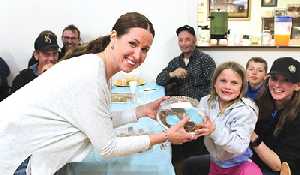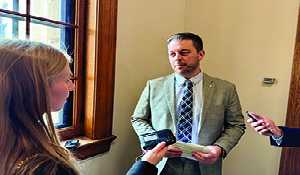Internet exploitation meeting tonight
September 28, 2018, 4:27 am


Moosomin RCMP are hosting an internet exploitation presentation at the Canalta Hotel meeting room in Moosomin at 6:30 pm this evening, Thursday, Sept. 27.
The session is free to attend, and everyone is welcome.
The session will be led by Cpl Cory Patterson of the Saskatchewan Integrated Child Exploitation Unit.
“The presentation will cover talk about internet safety. It will cover what parents should look for, the dark web, changing online trends, what the kids are doing online, that sort of thing,” explained Sgt. Scott Fefchak of the Moosomin RCMP.
“In this day and age we are so reliant on technology, and if your youth has unfettered access to the internet it does come with some bad,” Cpl. Patterson explained at an earlier presentation at Carlyle.
The Sask ICE Unit was created in 2009, and has eight investigators to cover the province.
It was created to investigate child pornography, child exploitation, and luring over the internet.
Cpl Patterson said there are some simple messages he wants to get out.
“They have to understand that once something is sent out, it’s never really gone," he said. "Whether posted to the internet or sent through SnapChat—there’s a nifty feature on phones to take a picture of your screen. So, whatever you’re sending can’t be taken back. Once you send a picture you lose control of it. You can do your best to get it back, but there’s always a copy somewhere.”
“The problem is that on the internet people can be anybody and once they have an image they will say ‘Now I’ve got you,’ and request to be sent more photos or videos, or else they’ll post what you sent them,” Patterson stated.
“Research is also showing that boys aged 14-18 are starting to show predatory behaviour in their interactions on the internet like that and if they’re never stopped and told that’s wrong, they will continue to do it.”
“Kids are naturally trusting and predators are master manipulators—it can literally be anyone on the other end. You can’t trust anybody online.”
“Also lead by example,” Patterson said. “I have a rule that they can look at my phone anytime and I can look at theirs. They are also not allowed to have their phones in the bathroom or bedroom and must be on the charging station at 9 p.m. Also, everyday at supper we ask the kids to tell us one good thing they’ve done today. Never be satisfied with ‘nothing’ or ‘everything’s fine.’”
“Have a conversation with them. Explain the risks and tell them what’s going on out there; be supportive and understanding.”
Patterson added that DNA and fingerprints are unique to a person. Online, every single electronic file created has a digital fingerprint.
“This allows investigators to track a file with a ‘hash value,’” Froh explained. “While file sharing that hash value guarantees that file is the file they are downloading – whether it’s music, movies, or child pornography. More people are being charged and convicted for child pornography than drugs.”
“They can be anyone. There is no way to stereotype or pick them out of a crowd.”



































